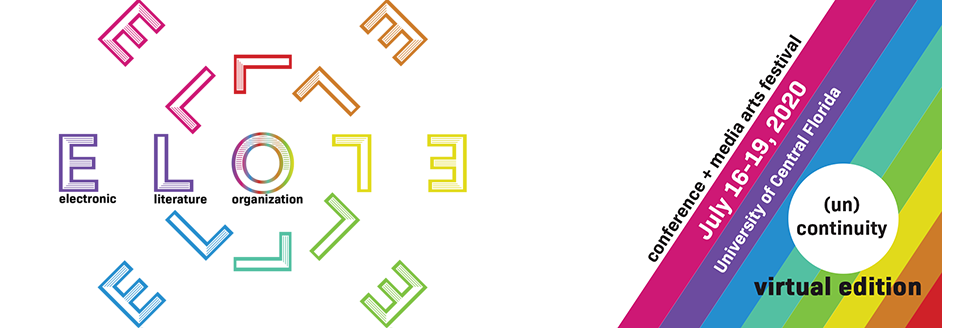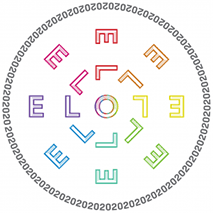Loading...
Submission Type
Conference Talk - Individual
Abstract
This paper is born out of conceptual work stimulated in the process of constructing a literary search engine for the PhoneMe project (www.phonemeproject.com), a social media app for spoken word poetry supporting a mobile phone-native genre of literary expression. Framed within the cultural theory of Hiroki Azuma, we explore some underlying principles of the searching behaviours of literary consumers and the topoi in which desire can be located and consummated. In building the database architecture for this user generated content driven application, our aim has been to creatively explore the notion of literary search, and provide the means of animating intelligent search of aesthetic texts.
Azuma sees the postmodern as an historical period characterized by a shift away from grand narratives to database culture, whereby information is consumed not as a cohesive unit stabilized by collectivized narratives, but as a protean association and assemblage of data fragments made available through searching databases. Such a cultural shift not only transforms the media, but also human subjectivity. While Lacan thought of subjectification as a process of imaginary identification (with other subjects) and symbolic identification (with the Other, the grand narrative), the absence of a grand narrative demands that we speculate about different pathways for subjectification. Azuma sees a new possibility of symbolic identification as occurring within the database.
Following Azuma, we propose a provocative theory based on the notion of invisible gathering of data by search engines and the bots of Big Data, creating a type of inadvertent semiosis we define as the production of anti-signs. In the database environment, these anti-signs are aggregated to produce the consumer’s antibody. This antibody is the database manifestation of what Deleuze and Guattari call “dividual", and is generated through the process of leaving hidden traces of our desires through the act of searching. An intelligent being, the automated Other learns with the real person, until it begins to serve (feed) the informational needs of the user according to predictive algorithms, at which point the relationship is reversed, and via the user’s mathematical-double, it begins to guide and direct the user’s tastes, interests, and affiliations. In other words, the act of searching is increasingly domesticated by the mathematical order.
We posit that there are a variety of search patterns and behaviours that can be used to bring contingency back into the act of searching, and this may be done by deliberately prompting glitches to occur–what Azuma calls misdelivery: “By meeting people who one was never expected to meet, going to places where one was never expected to go, and thinking about things that one was never expected to think, one brings contingency back into the system of the Empire and re-link the branches that are concentrated in order to move from prioritized choices back to misdelivery.” Through taxonomizing different modes and postures of search, we share ways in which we can make the act of searching a creative, generative, instinctual, even chance-oriented practice, deepening individual investment in learned assemblages of relevant knowledge.
Search and consume: Consummation of desire among the database animals
This paper is born out of conceptual work stimulated in the process of constructing a literary search engine for the PhoneMe project (www.phonemeproject.com), a social media app for spoken word poetry supporting a mobile phone-native genre of literary expression. Framed within the cultural theory of Hiroki Azuma, we explore some underlying principles of the searching behaviours of literary consumers and the topoi in which desire can be located and consummated. In building the database architecture for this user generated content driven application, our aim has been to creatively explore the notion of literary search, and provide the means of animating intelligent search of aesthetic texts.
Azuma sees the postmodern as an historical period characterized by a shift away from grand narratives to database culture, whereby information is consumed not as a cohesive unit stabilized by collectivized narratives, but as a protean association and assemblage of data fragments made available through searching databases. Such a cultural shift not only transforms the media, but also human subjectivity. While Lacan thought of subjectification as a process of imaginary identification (with other subjects) and symbolic identification (with the Other, the grand narrative), the absence of a grand narrative demands that we speculate about different pathways for subjectification. Azuma sees a new possibility of symbolic identification as occurring within the database.
Following Azuma, we propose a provocative theory based on the notion of invisible gathering of data by search engines and the bots of Big Data, creating a type of inadvertent semiosis we define as the production of anti-signs. In the database environment, these anti-signs are aggregated to produce the consumer’s antibody. This antibody is the database manifestation of what Deleuze and Guattari call “dividual", and is generated through the process of leaving hidden traces of our desires through the act of searching. An intelligent being, the automated Other learns with the real person, until it begins to serve (feed) the informational needs of the user according to predictive algorithms, at which point the relationship is reversed, and via the user’s mathematical-double, it begins to guide and direct the user’s tastes, interests, and affiliations. In other words, the act of searching is increasingly domesticated by the mathematical order.
We posit that there are a variety of search patterns and behaviours that can be used to bring contingency back into the act of searching, and this may be done by deliberately prompting glitches to occur–what Azuma calls misdelivery: “By meeting people who one was never expected to meet, going to places where one was never expected to go, and thinking about things that one was never expected to think, one brings contingency back into the system of the Empire and re-link the branches that are concentrated in order to move from prioritized choices back to misdelivery.” Through taxonomizing different modes and postures of search, we share ways in which we can make the act of searching a creative, generative, instinctual, even chance-oriented practice, deepening individual investment in learned assemblages of relevant knowledge.




Bio
Yuya Takeda is a PhD student in the Department of Language and Literacy Education at the University of British Columbia. His doctoral dissertation explores pedagogical and methodological possibilities of participatory documentary filmmaking for learners' cultivation of critical media literacy. Existentialism resonates well with his soul. yuyapecotakeda.com
Kedrick James is a poet, professor, theorist and explorer in the field of digital arts-based educational research working at the University of British Columbia in the Department of Language and Literacy Education. He began publishing poetry in the 1980s and played a key role in the development of West Coast spoken word. He is also a musician and has performed internationally, published books, magazines, articles, chapters, records, cassettes, CDs, broadcast videos, computer poetry, and presented gallery showings of his visual art. See more at http://www.kedrickjames.net.